
Opinions
14:29, 04-Oct-2017
Opinion: Born of chaos, India lumbers amid turmoil
By Qian Feng from Global Times
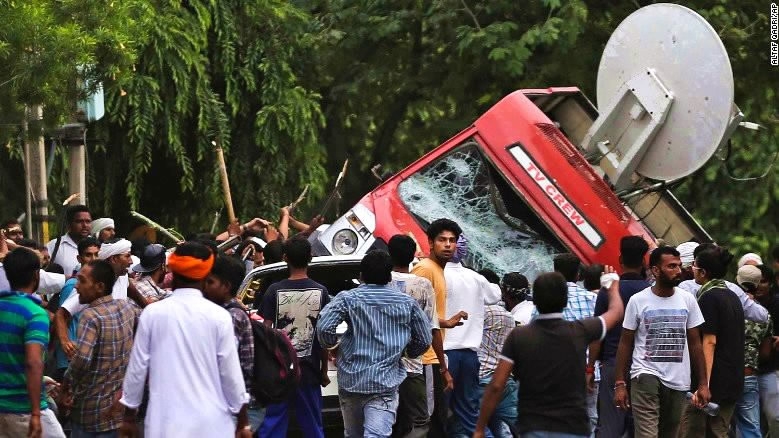
India, a country frequently covered in the Chinese media, seems to be in constant chaos.
Not long ago, Gurmeet Ram Rahim Singh, the head of Dera Sacha Sauda, a quasi-religious body based in Sirsa in Haryana state, was convicted and jailed for rape, triggering large-scale violence.
In addition, according to a BBC report in August, more than 100 children have died at a public hospital in northern India, which raised concerns over healthcare in the country of 1.3 billion.
And the clashes between police and Gurkha activists in the Darjeeling hills for a separate state for the ethnic minority within the borders of India have been ongoing for several months with no signs of abating.
Moreover, the country has seen frequent military frictions with Pakistan in Kashmir.
From diplomacy to people's livelihood, India is caught up in disorder.
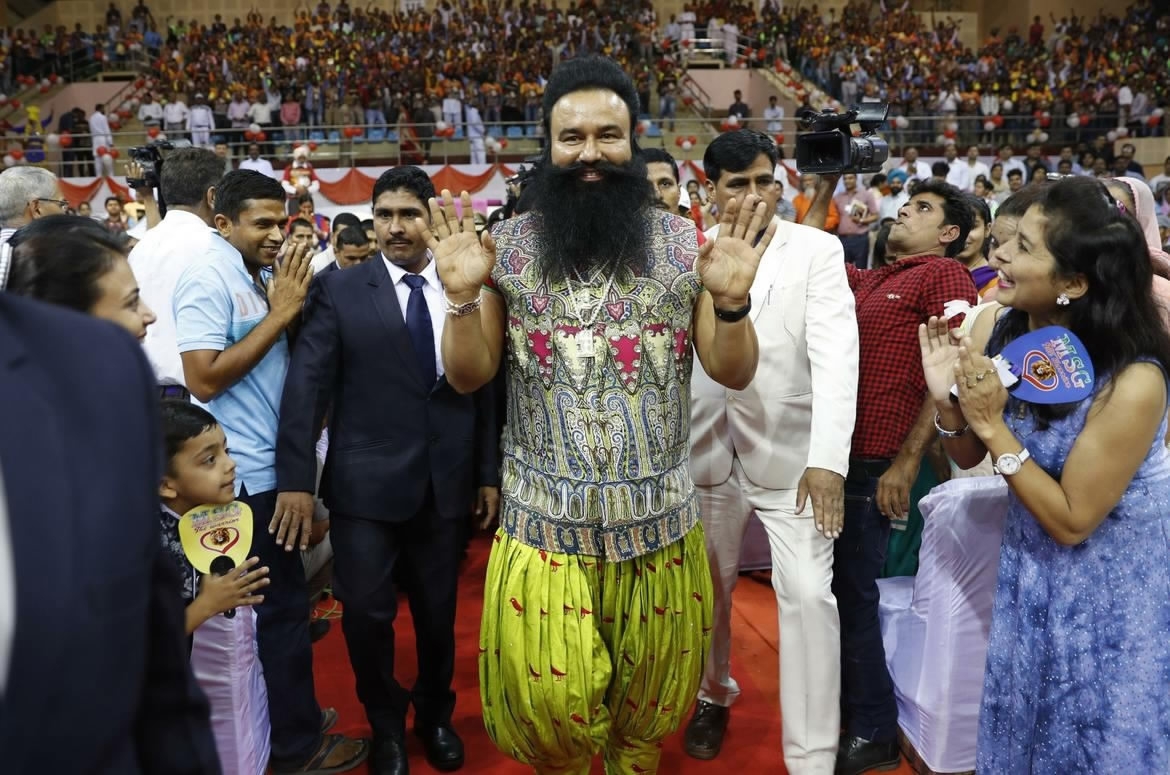
Indian spiritual guru Gurmeet Ram Rahim Singh greets followers as he arrives for a press conference in New Delhi, India, Oct. 5, 2016. /AP Photo
Indian spiritual guru Gurmeet Ram Rahim Singh greets followers as he arrives for a press conference in New Delhi, India, Oct. 5, 2016. /AP Photo
The cause for the chaos in India, to a large extent, is rooted in history. India experienced short-term unity but long-term separation, and endured frequent invasions.
Modern India was born from blood and fire 70 years ago. In 1947, when the British withdrew from the Indian subcontinent, they divided colonial India into two states — one with a Muslim majority (Pakistan), and the other with a Hindu majority (India), leading to the partition of the Indian subcontinent.
The mass migration that followed triggered massive turmoil. There were countless conflicts, killings and clashes between Hindus and Muslims. It was estimated that the partition of India and Pakistan led to at least 500,000 deaths and made 12 million people homeless. The resulting hatred between the two countries is the main source of conflict in Kashmir nowadays.
Chaos has become so pervasive that the country with numerous ethnicities, races, religions and languages, seems to be steeped in disorder. In nationality, with thousands of years of migration, India has a complex mix of nationalities.
At present, five ethnicities have a population of over 100 million each and 15 ethnicities have a population of over 10 million. There are also hundreds of minority groups and tribes.
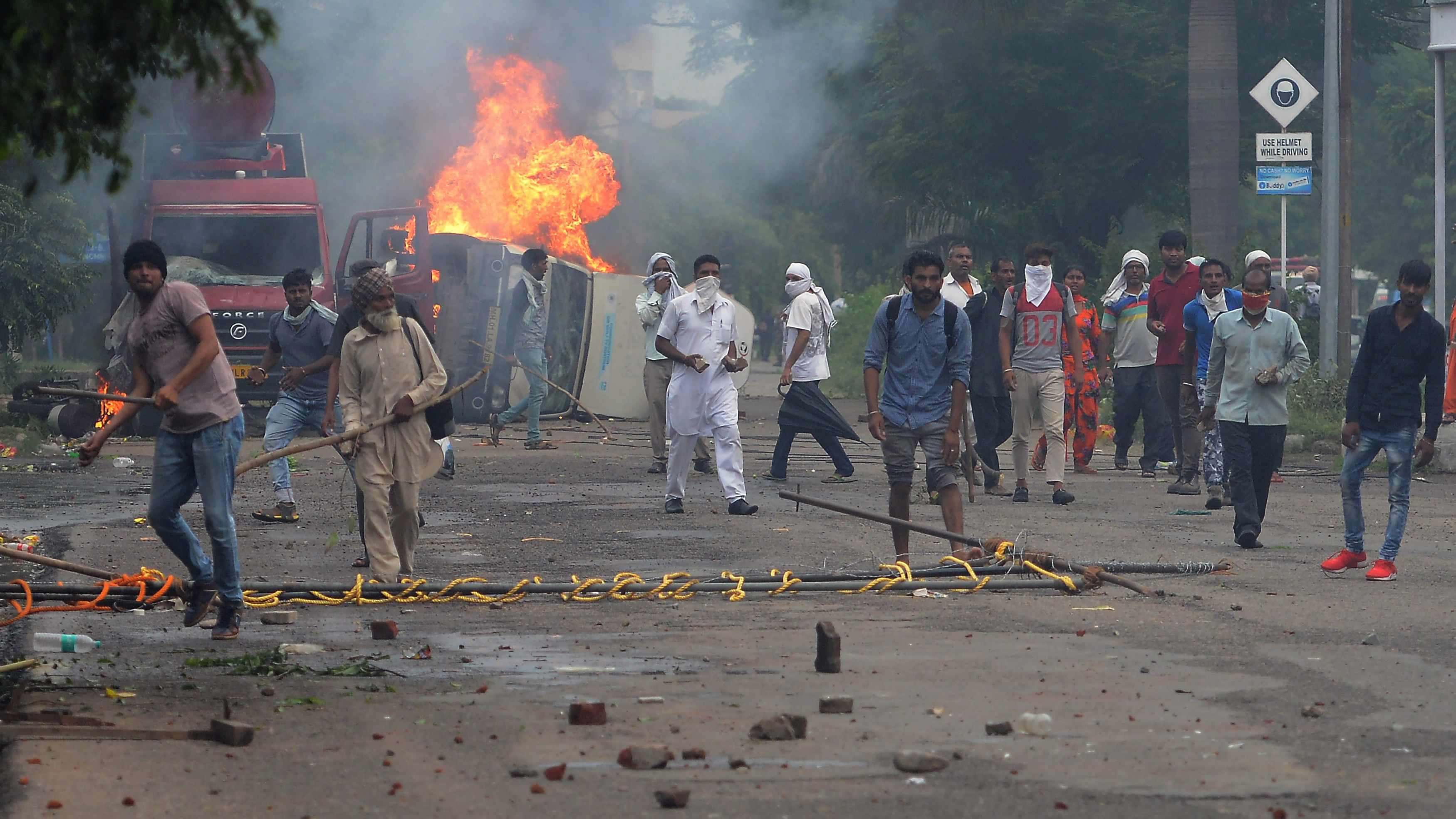
Supporters of Indian guru Gurmeet Ram Rahim Singh clash with security forces next to burning vehicles in Panchkula on August 25, 2017. /AFP Photo
Supporters of Indian guru Gurmeet Ram Rahim Singh clash with security forces next to burning vehicles in Panchkula on August 25, 2017. /AFP Photo
India is not only the birthplace of Hinduism, Buddhism, Sikhism, Jainism, but also the home to more than 200 million Muslims and tens of millions of Christians.
The country speaks 1652 languages and dialects, and there are as many as 15 languages on its currency notes.
In addition, the more than 3,000-year-old caste system in India has divided Hindus into four main social classes, with each enjoying different social status, leading to confrontations. Moreover, after independence from British rule, a pluralistic and diverse society has given birth to many political parties.
Prior to independence, India saw continuous wars and clashes between different religions, nationalities and ethnicities.
After independence, a multi-party system was set up. The different parties contested for their own political rights and economic benefits. Parties at the national level engage in partisan fights while the regional ones often stage demonstrations. Such turmoil occurs almost every day. Once confrontations increase, violence may lead to bloodshed.
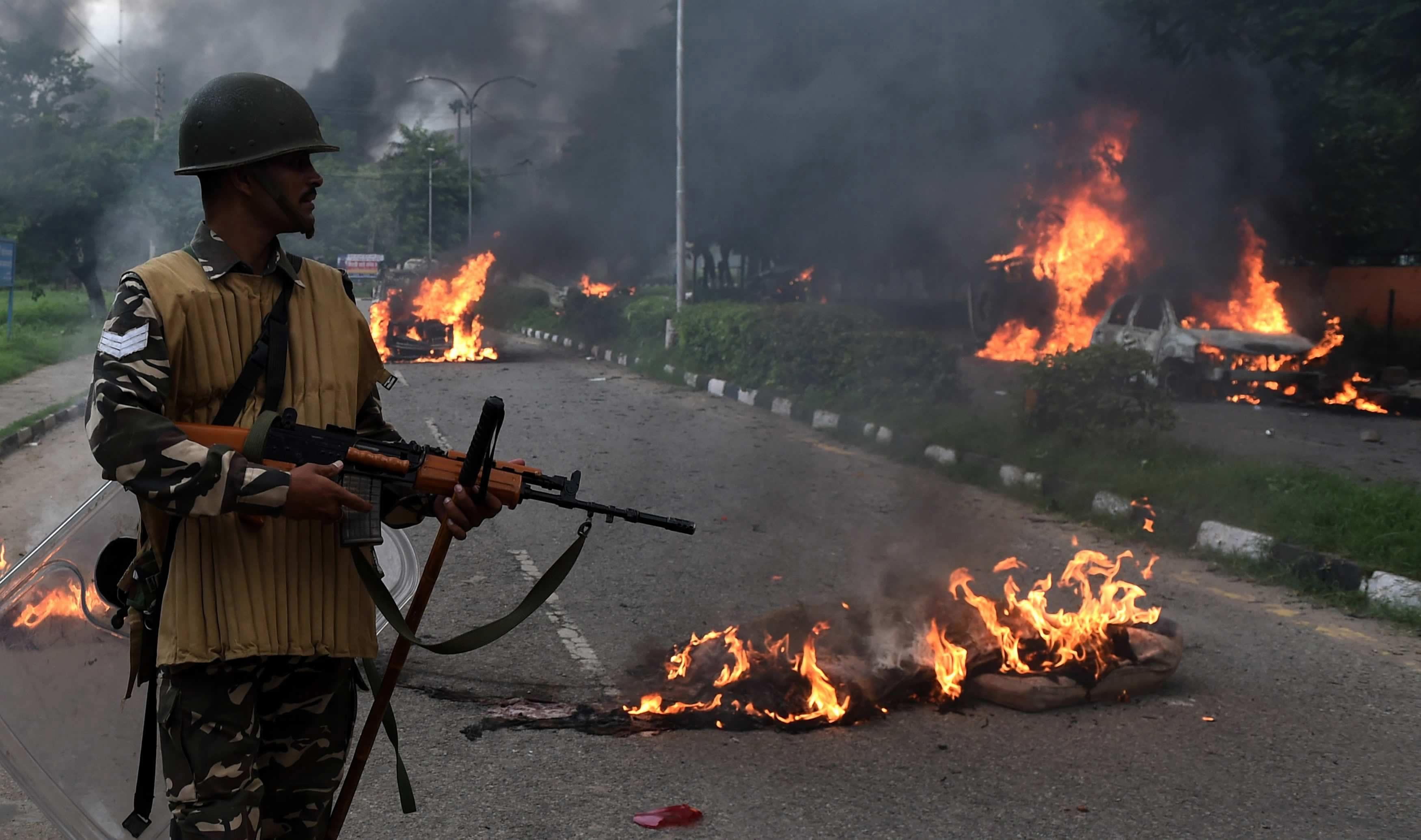
Burning vehicles set alight by rioting followers of a religious leader convicted of rape in Panchkula, India on August 25, 2017. /AFP Photo
Burning vehicles set alight by rioting followers of a religious leader convicted of rape in Panchkula, India on August 25, 2017. /AFP Photo
With the rapid transformation of society, the increasing gap between rich and poor, the fierce competition because of partisan politics, the rising civil rights consciousness, and the amplifying effect of new media, chaos in India will continue to simmer, accompanied once in a while by a cyclical outbreak. It can affect the country's economic development, social stability and international image.
Nevertheless, considering the history of India since independence, chaos in the country will likely be controllable owing to the flexibility of its political system, tolerance of its society, the patience of its people and improved governance.
It is unlikely that conflict and chaos will evolve into a subversion of its system and bring adversity to its people.
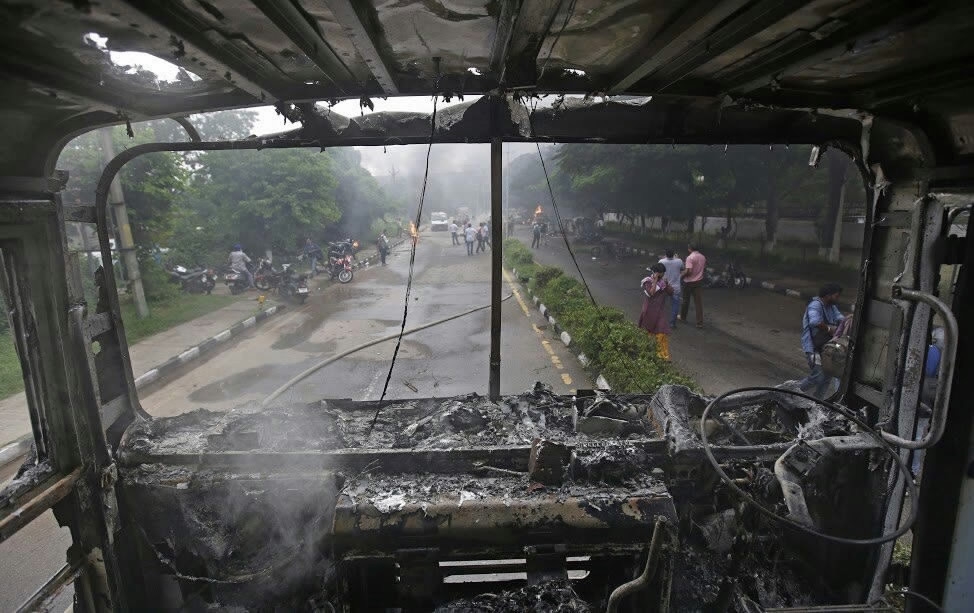
CGTN Photo
CGTN Photo
(This piece was originally published on Global Times. The author is a research fellow at the National Strategy Institute of Tsinghua University and executive director at the Chinese Association for South Asian Studies. The article reflects the author's opinion, and not necessarily the views of CGTN.)
Source(s): Global Times

SITEMAP
Copyright © 2018 CGTN. Beijing ICP prepared NO.16065310-3
Copyright © 2018 CGTN. Beijing ICP prepared NO.16065310-3